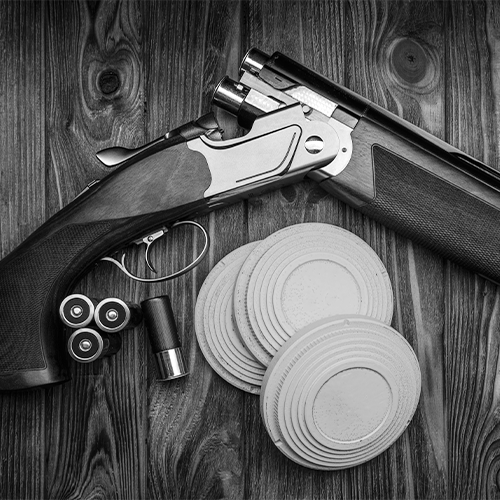Firearm Certificates | Appealing Refusal or Revocation of a Certificate

Firearms control in the UK is amongst the most stringent in the world with the result that offences involving firearms represent a small proportion of all criminal offences.
The purchase, acquisition or possession of a firearm and ammunition, is managed by the issue of a certificate to an individual who has an acceptable reason to own one and is considered by the licensing authority as not posing a threat to public safety.
Low powered air weapons are not licensed in England and Wales, unless declared especially dangerous by the Firearms (Dangerous Air Weapons} Rules 1969, although restrictions are imposed on their sale.
The Police are the licensing authority for firearm and shotgun certificates and applications for authority to possess prohibited weapons, such as handguns, are determined by the Home Office.
Firearm and shotgun certificates are valid for five years whereafter an application for renewal must be submitted.
The licensing authority may refuse the issue of, or revoke, a certificate at any time.
Sukhi Randhawa of KANGS comments upon the law governing the issue and revocation of a firearm certificate.
Issue of a Firearm Certificate
It can be extremely difficult to obtain any form of firearm certificate in the UK and one will only be issued when the relevant authority is satisfied as to the presence of the statutory requirements shown below.
Revocation of Firearm Certificate
Surrender of certificate.
Before the revocation of a certificate, firearms can be seized and retained by the police or other relevant authority whilst conducting further investigations into the eligibility of an individual to hold a firearm s certificate.
Upon revocation of a firearm certificate the Chief Officer of Police must require the relevant individual to surrender the certificate.
Where the certificate is partially revoked, its production will be required for the purposes of amending it.
The individual concerned must be sent a letter setting out the grounds for revocation and advising that there exists a right of appeal, which must be exercised within twenty -one days.
The Relevant Law
The Firearms Act 1968 (‘the Act’) states as follows:
S27 Special provisions about firearm certificates
A firearm certificate will only be granted where the Chief Officer of Police is satisfied that the applicant:
- is fit to be entrusted with a firearm and is not a prohibited person, both as defined by the Act
- has good reason for having in his possession, purchasing or acquiring the firearm or ammunition
- can be permitted to possess the same without danger to public safety or the peace.
The certificate will specify the restricting conditions applicable, the identification and number of weapons and the quantities of relevant ammunition.
S30A Revocation of firearm certificates
(2) The chief officer of police may revoke a firearm certificate if he has reason to believe that the holder:
- is of intemperate habits or unsound mind, or is otherwise unfitted to be entrusted with a firearm,
- can no longer be permitted to have the firearm or ammunition to which the certificate relates without danger to the public safety or to the peace,
- is prohibited from possessing a firearm as defined by section 1 of the Act,
- no longer has a good reason for possessing, purchasing or acquiring the firearm or ammunition authorised by the certificate,
- has failed to comply with a notice requiring the production of the certificate.
‘Intemperate habits’ include criminal convictions, evidence of drug or alcohol misuse and domestic violence incidents.
Where ‘unsound mind’ is alleged, the police will usually rely on medical evidence suggesting a risk to members of the public or the certificate holder due to unpredictable behaviour, attempted suicide or detention under the Mental Health Act.
‘Public safety’ usually involves evidence of the unsafe handling or storage of firearms, allegations of criminal behaviour or association with others known to be engaged in criminal activity.
S30B Partial revocation of firearm certificates
The Chief Officer of Police may partially revoke a firearm certificate only if satisfied that the holder no longer has a good reason for possessing, purchasing or acquiring the firearm or ammunition to which the partial revocation relates.
S30C Revocation of shot gun certificates
A shotgun certificate may be revoked by the Chief Officer of Police if satisfied that the holder is prohibited from possessing a shotgun or cannot be permitted to possess a shot gun without danger to the public safety or to the peace.
When the certificate is revoked, the firearms named on the certificate are usually seized. If they are not, but an Order is made for them to be surrendered to the police, they must be handed over. It is a criminal offence not to comply with a Notice to hand over a firearm or shotgun
Appealing Revocation of a Firearm Certificate
A revocation will not be suspended during an Appeal, but any seized firearms can be released to authorised licensed persons.
Decisions likely to give rise to an Appeal are a:
- refusal to grant or vary any certificate,
- certificate being revoked,
- new condition attached to a certificate,
- variation of any condition attached to the certificate.
Appeals are governed by s.44 of the Act which provides that:
- an appeal shall be determined on the merits, as opposed to by way of review,
- the appeal may consider any evidence, or other matter, whether or not available when the decision under review was made.
Effectively, this means that the Court will consider the circumstances afresh including new evidence coming to light since the decision was made. Additionally, the evidence may include ‘hearsay evidence’ which was before the Chief Officer of Police: Kavanagh v Chief Constable of Devon and Cornwall [1974] and R v Crown Court at Aylesbury, ex p Farrer (1988).
The Court may take into account, amongst other things:
- mental health and other medical conditions,
- any drug use,
- anger/behavioural issues,
- any criminal convictions,
- complaints/allegations questioning the individual’s mental state or capacity to own a firearm,
- any other relevant matter.
Costs of Appeal
Normally, even where an individual is successful on Appeal, costs will not be awarded against the police unless it can be proven that the original decision was unreasonable, or the police had acted in bad faith.
Accordingly, any applicant must expect to pay their own costs for the proceedings.
How Can We Assist?
Should your firearm certificate application be refused or your certificate revoked it is essential that you seek legal representation immediately to ensure that your Appeal is made within the strict period of twenty-one days set out by the Act.
If you require our assistance, please do not hesitate to contact our Team on the contact details below and we would be delighted to assist.
Tel: 0333 370 4333
Email: info@kangssolicitors.co.uk
We provide initial no obligation discussion at our three offices in London, Birmingham, and Manchester. Alternatively, discussions can be held through video conferencing or telephone.
Top ranked by leading legal directories Chambers UK and the Legal 500.






